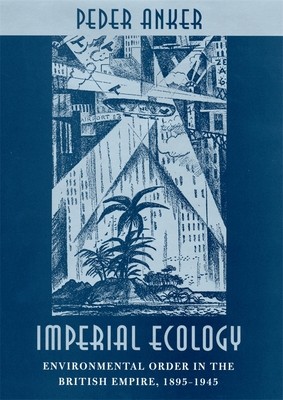
- We will send in 10–14 business days.
- Author: Peder Anker
- Publisher: Harvard University Press
- ISBN-10: 0674005953
- ISBN-13: 9780674005952
- Format: 16.8 x 24.4 x 3.5 cm, kieti viršeliai
- Language: English
- SAVE -10% with code: EXTRA
Reviews
Description
From 1895 to the founding of the United Nations in 1945, the promising new science of ecology flourished in the British Empire. Peder Anker asks why ecology expanded so rapidly and how a handful of influential scientists and politicians established a tripartite ecology of nature, knowledge, and society.
Patrons in the northern and southern extremes of the Empire, he argues, urgently needed tools for understanding environmental history as well as human relations to nature and society in order to set policies for the management of natural resources and to effect social control of natives and white settlement. Holists such as Jan Christian Smuts and mechanists such as Arthur George Tansley vied for the right to control and carry out ecological research throughout the British Empire and to lay a foundation of economic and social policy that extended from Spitsbergen to Cape Town. The enlargement of the field from botany to human ecology required a broader methodological base, and ecologists drew especially on psychology and economy. They incorporated those methodologies and created a new ecological order for environmental, economic, and social management of the Empire.EXTRA 10 % discount with code: EXTRA
The promotion ends in 22d.06:51:46
The discount code is valid when purchasing from 10 €. Discounts do not stack.
- Author: Peder Anker
- Publisher: Harvard University Press
- ISBN-10: 0674005953
- ISBN-13: 9780674005952
- Format: 16.8 x 24.4 x 3.5 cm, kieti viršeliai
- Language: English English
From 1895 to the founding of the United Nations in 1945, the promising new science of ecology flourished in the British Empire. Peder Anker asks why ecology expanded so rapidly and how a handful of influential scientists and politicians established a tripartite ecology of nature, knowledge, and society.
Patrons in the northern and southern extremes of the Empire, he argues, urgently needed tools for understanding environmental history as well as human relations to nature and society in order to set policies for the management of natural resources and to effect social control of natives and white settlement. Holists such as Jan Christian Smuts and mechanists such as Arthur George Tansley vied for the right to control and carry out ecological research throughout the British Empire and to lay a foundation of economic and social policy that extended from Spitsbergen to Cape Town. The enlargement of the field from botany to human ecology required a broader methodological base, and ecologists drew especially on psychology and economy. They incorporated those methodologies and created a new ecological order for environmental, economic, and social management of the Empire.

Reviews